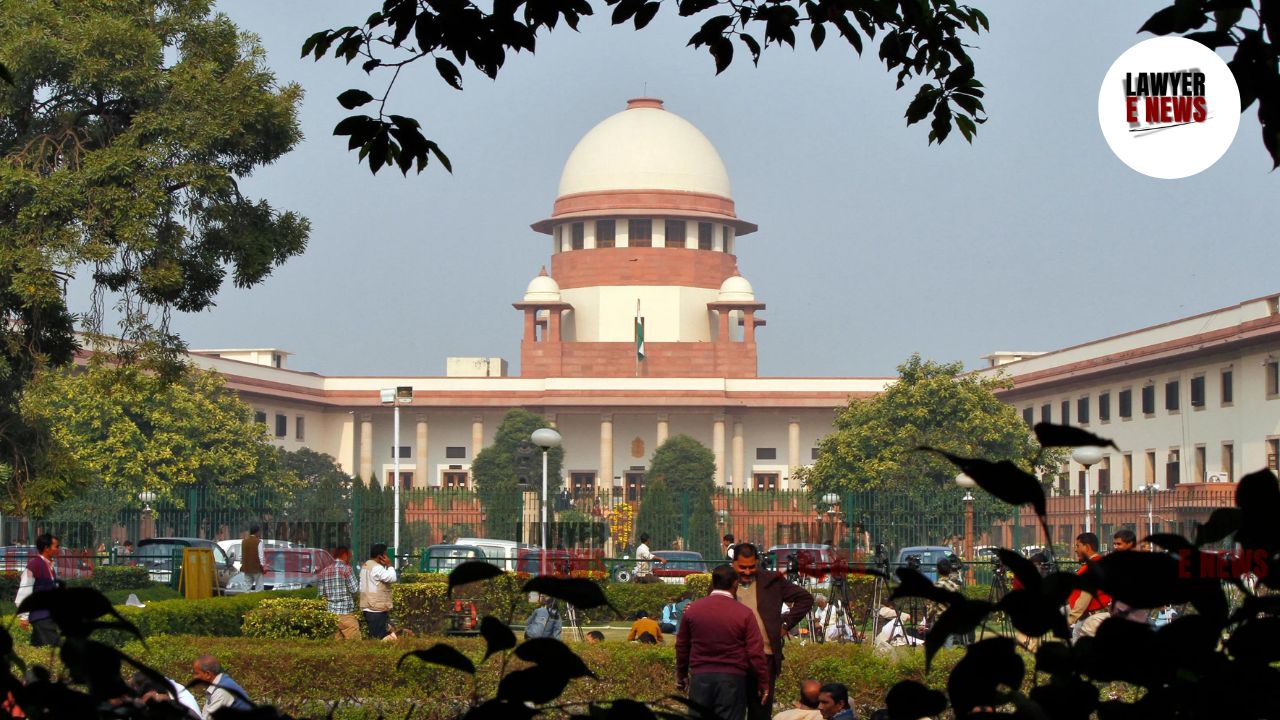-
by Admin
15 February 2026 2:36 AM



In a landmark judgment delivered on October 18, 2024, the Supreme Court of India ruled that Pranav Srinivasan, a Singaporean citizen born to Indian parents, is not entitled to resume Indian citizenship under Section 8(2) of the Citizenship Act, 1955. The court set aside the Madras High Court's ruling which had granted Pranav the right to resume Indian citizenship and clarified the applicable provisions for determining Indian citizenship for persons born outside India. However, the court left open the possibility for Pranav to apply for citizenship under Section 5(1)(f) of the Act.
Pranav Srinivasan, the respondent in the civil appeal and the petitioner in the writ petition, was born in Singapore on March 1, 1999 to parents who were born in India but had acquired Singaporean citizenship in 1998. His grandparents were born in pre-independence India. On May 5, 2017, shortly after attaining the age of majority, Pranav applied for the resumption of Indian citizenship under Section 8(2) of the Citizenship Act, which allows minor children of Indian citizens who renounce their citizenship to apply for its resumption upon reaching adulthood. His application was initially rejected by the Ministry of Home Affairs, leading to a legal battle.
After winning his case before the Madras High Court, which ruled in his favor, the Union of India challenged the decision before the Supreme Court, arguing that Pranav was not eligible for Indian citizenship under Section 8(2) as his parents had automatically ceased to be Indian citizens upon acquiring Singaporean citizenship in 1998, before Pranav's birth.
Citizenship under the Constitution and the Citizenship Act
The primary legal issue revolved around whether Pranav Srinivasan could resume Indian citizenship under Section 8(2) of the Citizenship Act, 1955, and whether Article 8 of the Indian Constitution applied to his case, which provides for citizenship for persons of Indian origin residing outside India.
Pranav's legal team, led by senior counsel C.S. Vaidyanathan, argued that Pranav was entitled to Indian citizenship both under Article 8 of the Constitution, given his parents’ and grandparents' Indian origin, and under Section 5(1)(b) of the Citizenship Act, which allows persons of Indian origin residing outside India to apply for citizenship by registration.
Article 8 and Citizenship by Registration
The Supreme Court, in a judgment authored by Justice Abhay S. Oka, extensively analyzed the relevant constitutional provisions and the Citizenship Act, 1955.
Article 8 of the Indian Constitution provides for Indian citizenship for persons of Indian origin residing outside India if they apply to an Indian diplomatic or consular representative. However, the court clarified that Article 8 applies to individuals residing outside India at the time of the Constitution’s commencement (January 26, 1950). Since Pranav was born after the Constitution's commencement, in 1999, Article 8 did not apply to him.
Section 8(2) of the Citizenship Act, 1955 allows the resumption of citizenship for minor children whose parents voluntarily renounced Indian citizenship. However, the court held that Pranav’s parents had not voluntarily renounced their Indian citizenship—they had automatically lost their Indian citizenship upon acquiring Singaporean citizenship in 1998, by operation of Section 9(1) of the Citizenship Act. Thus, Section 8(2) did not apply in Pranav’s case.
Section 5(1)(b) of the Citizenship Act allows persons of Indian origin residing outside undivided India to apply for citizenship. The court interpreted “undivided India” strictly, referring to the India as defined in the Government of India Act, 1935, and concluded that Pranav and his parents were not born in undivided India, and hence this provision was also not applicable.
"Section 8(2) applies only when a parent has voluntarily renounced Indian citizenship, which was not the case here, as Pranav's parents lost their Indian citizenship by acquiring Singaporean citizenship." – Supreme Court
No Citizenship Under Article 8 or Section 8(2)
The Supreme Court found that neither Article 8 of the Constitution nor Section 8(2) of the Citizenship Act applied to Pranav's case. The court emphasized that citizenship laws must be interpreted strictly, and equitable considerations could not be used to extend Indian citizenship to foreign nationals outside the scope of the law.
The court also rejected the Madras High Court’s ruling, which had incorrectly allowed Pranav to resume his Indian citizenship under Section 8(2).
"Citizenship laws must be interpreted with precision, and there is no scope for a liberal interpretation where the language of the law is clear." – Supreme Court
Scope for Future Application: Section 5(1)(f)
While denying Pranav's claim for citizenship under Sections 8 and 5(1)(b), the Supreme Court did leave a window open for him to apply for Indian citizenship under Section 5(1)(f) of the Citizenship Act, which allows former Indian citizens or their children to apply for citizenship if they reside in India for 12 months prior to the application. The court noted that Pranav could also request a relaxation of the 12-month residency requirement under Section 5(1A).
Final Ruling and Outcome
The Supreme Court allowed the appeal filed by the Union of India, setting aside the Madras High Court’s decision.
Writ Petition No. 123 of 2024, filed by Pranav Srinivasan challenging the denial of citizenship, was dismissed.
The court permitted Pranav to apply for Indian citizenship under Section 5(1)(f) of the Citizenship Act and seek relaxation of the residency requirement if needed.
Key Takeaways from the Judgment:
Article 8 of the Constitution applies only to those residing outside India as of January 26, 1950.
Section 8(2) of the Citizenship Act only applies when parents voluntarily renounce Indian citizenship.
Citizenship by registration under Section 5(1)(b) requires that either the person or their parents be born in undivided India.
The court reaffirmed the importance of strict statutory interpretation of citizenship laws.
Pranav Srinivasan may still apply for Indian citizenship under Section 5(1)(f), provided he meets the residency requirements or obtains a relaxation.
Date of Decision: October 18, 2024
